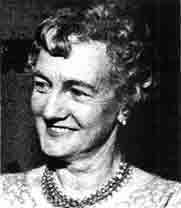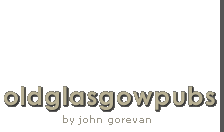Edinburgh Tavern's.
Many years ago Taverns were almost the only means provided for social enjoyment. Cooped up, as it were, in cities and towns, little else could be expected than the development and increase of the drinking system. It was such circumstances, that the professional and merchant classes became accustomed to meet regularly, in a social capacity, at convivial clubs held in the taverns, especially in the larger centre's of population, such as Edinburgh and Glasgow. These old fashioned taverns were generally very uninviting places, both as regards accommodation and surroundings. In old Edinburgh the taverns were chiefly situated in the long narrow, steep closes leading off each side of the High Street. Many of them were dark and dingy; and, looking at from a modern standpoint, it appears strange that so many men of high literary attainments and professional eminence, both lay and clerical, could submit to spend so much of their leisure time year after year in such places.
One of these tavern's was the "Clerihugh's" known as the Star and Garter, and alluded to in "Guy Mannering." It was the favourite haunt of the magistrates and town council, who in those days mixed much more of private enjoyments with public duties than would now be considered fitting. The wags of that century used to tell of a certain city treasurer, who, on being applied to for a new rope to the Tron Kirk bell, summoned the Council to deliberate on the demand; an adjournment to Clerilhugh's tavern, it was hoped, might facilitate the settlement of so weighty a matter; but one dinner proved insufficient, and it was not till they had finished their third banquet in Clerilhugh's that the application was referred to a committee of councillor's, who spliced the old bell rope and settled the bill!
Another old tavern was situated in the Anchor Close near the Cross. The landlord was known as "Daunie Douglas." In the same close was Smellie's famous printing office, where Burns was for some time engaged daily in correcting the proof sheets of his new volume of poems. This celebrated tavern was the scene of daily and nightly convivial orgies, although in a dark and dingy alley. "Daunie Douglas" himself was a thin, weak, submissive man, who spoke in whispers. He had a habit of using the word "quietly" very frequently, without regard to its being remark that the castle had been firing to-day, quietly, which was not soon forgotten by his customers. Daunie was a perfect contrast to his wife. She was a large, fat woman, in a towering head-dress and large flowering-silk gown, and as she sat in her sanctum as landlady bowed to every one passing into the tavern.
It was here the famous Crochallan Club met, with which Burns and many literary characters of that century were identified. In 1776, a stabler in the Pleasance, named Dun, the same whose house Captain Topham describes, removed to the flats of a house in Princess Street, which was then being formed, Dun "fitted up the house in a singularly element style, and, himself entitled to designate his establishment by a property splendid and singular name, called it, in gilt letters, on the wall "Dun's Hotel." This was the first time that the work Hotel had been heard of in Scotland, where the phrase Stabler was at the most popular term for expressing the calling of an innkeeper.
Many of the old Edinburgh tavern were swept away in the event of city improvements. One of these, known as Johnnie Downie's, situated in Libberton's Wynd, a steep lane leading to the Cowgate. It was demolished in 1834 for the erection of the George IV. Bridge. A great portion of this curious old tavern was literally without light, consisting of a series of windowless walls decreasing in size till the last was a mere box of irregular oblong jocularly called "The Coffin." With very little light passing on the tavern as it was in a deep narrow alley, all one could see from a distance was the dim light of the name. Here many Parliamentary men came daily for their meridian, and here in the evenings where fashion assembled for convivial pleasures. It was a favourite of Burns during the few months he spent in Edinburgh, many jovial parties met the poet there. Johnny Downie himself was quite a character and was immortilised in Kay's celebrated Edinburgh Portraits and was greatly esteemed for his conscientiousness in business.
In 1892 the Windsor Hotel catered for the Royal College of Physicians and Surgeons. A most sumptuous list of vianda and wine carte could not be desired. Also Mr A M Ross of the Cafe Royal, Edinburgh, who began his career as an exhibition caterer at the Edinburgh Exhibition of 1886 and followed that up at Manchester, Brussels, Edinburgh in 1890 and the Naval Exhibition at London in 1891, made a tender of £100,000 for the refreshment contract at the World's Fair at Chicago in 1893. He had, however, been informed that the management have decided not to give a monopoly to any one caterer, but to divide the contract among those representing different nationalities.
In 1892 Mr William Pickett, of the Imperial Hotel, has been unanimously elected captain of the Edinburgh Heather Club.
Edinburgh Lady Director Dies. 1970.

Mrs F A Marshall. 1970.
Mrs F A Marshall, licensee of the Ormelie Bar, Joppa Road, Joppa, Edinburgh, had died suddenly in an Edinburgh hospital.
Only a few weeks prior, Mrs Marshall was one of the first two lady Licensees to be elected directors of the Edinburgh Licensed Trade Association when it was decided that the Association should break its tradition of men only on the directorate, which had ruled for generations.
Mrs Marshall took over the Ormelie when her husband went on active service during the war. When her husband returned home after the war years it was decided that Mrs Marshall should continue to reign at the Ormelie as she had been so successful.
Mr Ian Allan, president of the association, said: 'The death of Mrs Marshall is a sad loss to her many friends in the trade. She was a keen worker for the association and had been eager to undertake her added duties as a director.'
Mr Marshall is a representative with MacKinlay-McPherson.
Auld Hoose, opened by Pat Stanton (Captain of Hibs F. C.) 1974
Edinburgh Licensees visit Harp Lager Brewery.
Edinburgh Licensed Trade dinner-dance 1974.
Star & Garter, Winchburgh, Edinburgh.
The Viceroy Bar, Lothian Road, Edinburgh.
End.
